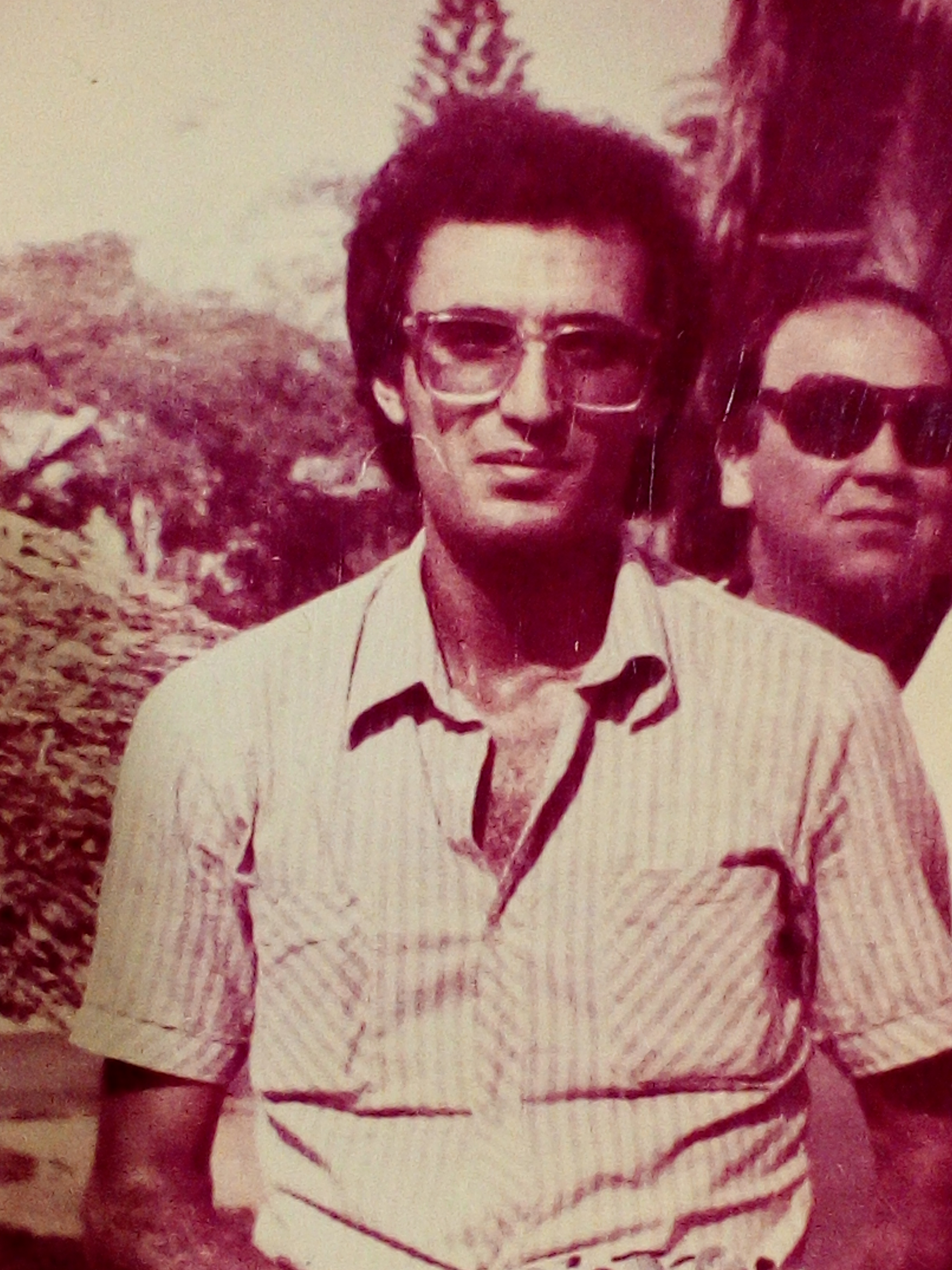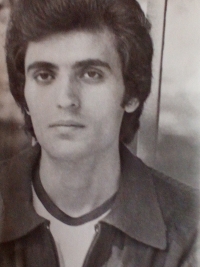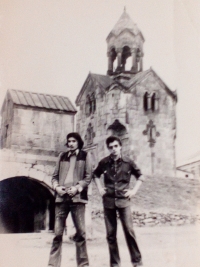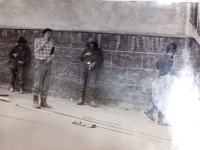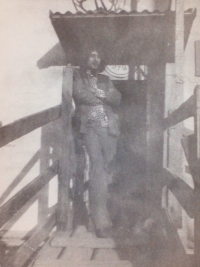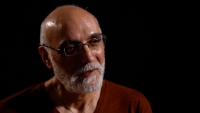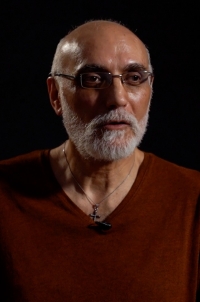We were third year students and I got to know Samvel Gevorgyan, who used to work in the Radio. My poems and particularly translations, since they stopped publishing my poems at a certain point, were broadcast on radio, and Samvel had seen me on the day of the demonstration that we organized that year. In other words, when I was a third year student, it was the early November of the [19]78, if I remember it correctly, we had learnt that the Genocide memorial in Beirut was blown-up and there was an attack on Bourj Hammoud Armenian district, and we became very angry that they had organized just a Komsomol meeting, and there were formal speeches, pathos, some poems, etc., etc. And me and my friends transformed that meeting into a demonstration. Samvel had seen me during that demonstration and later entrusted me with several banned books, one of which, as far as I remember, was Leo’s “From The Past”, which in fact is an essentially very anti-Dashnak book. But the Soviet rule was not to provide any information that, let’s say, would make a mind work. Let's say, “Armenian History” books were thin books, and I think precisely for the purpose of you not having too much patriotism so as it would not become an obstacle for them. Let’s say “History of USSR” was taught for four years, and we were running through it from prehuman until A.D. 1000 in 20, 30 or 50 pages, so we could reach the year 1000 soon, and the history of Russia would commence, and then we were studying the history of Russia for three and a half or four years. In other words, that Komsomol meeting as well, was like a cover-up, like smoothing, or perhaps they were told from above to organize something like that. Yet, it was not important for us. We did that demonstration and were happy that we were able to organize something like that. Yes, and I took books from Samvel sometimes. Samvel Gevorgyan later became a member of Karabakh Committee, was the Editor-in-Chief of the first registered independent newspaper “Hayk”, and so on, Chairman of a committee of the National Assembly (at the time it was called Supreme Council). Then at one point he showed me a copy of a document, a decree of the USSR Minister of Enlightenment, on introducing Russian as the language of instruction for all professional subjects at the universities starting from September. And that was a great tragedy for us, for me and a small group of my friends, since we were seeing how Armenia was being Russified. Particularly in Yerevan city center, for example, Armenian and Russian were equally heard not because there were tourists or “relocants”, but because the so-called “upper class” of Yerevan or Armenia that mostly lived in Yerevan, believed that Russian was a more important language. Moreover, as an upper class, “a special snowflake”, they had to speak Russian, to send their kids to a Russian school. The number of Russian schools was constantly growing, and bribes and nepotism were utilized to get accepted to Russian schools. I.e., they [Russian schools] were not enough for the people that took the path of assimilation.
